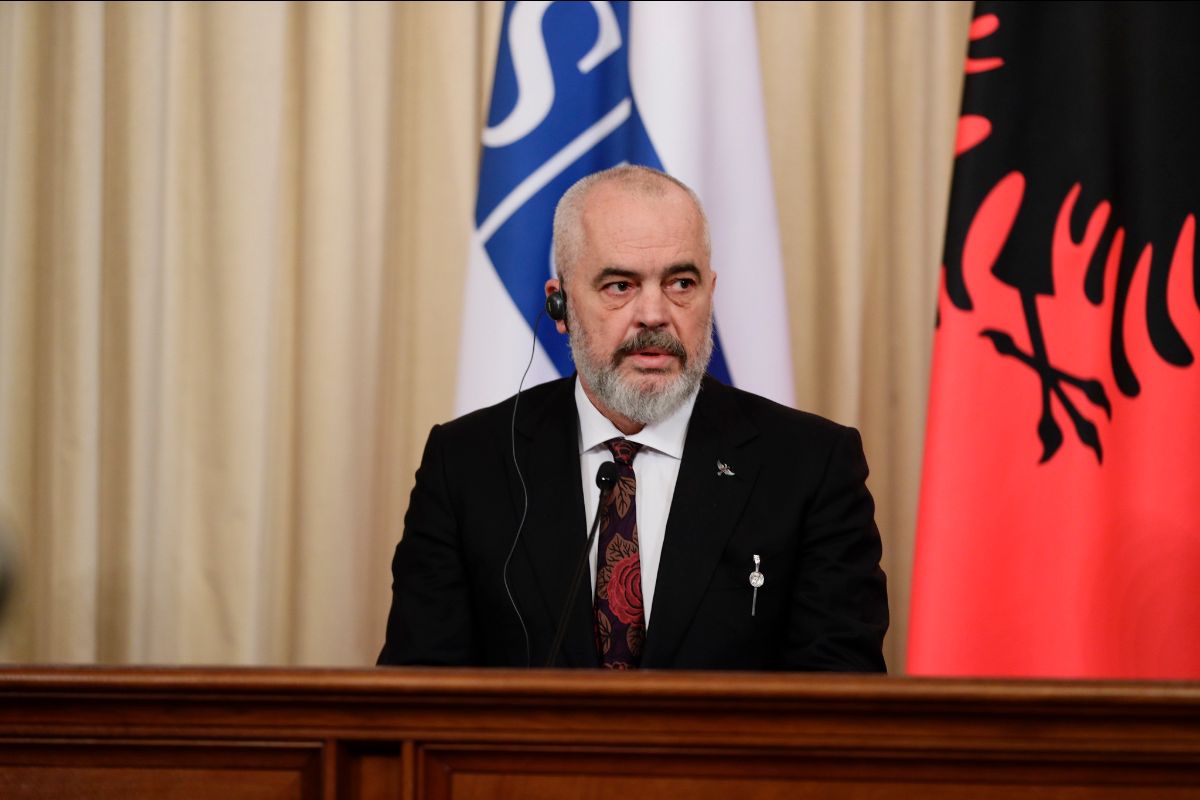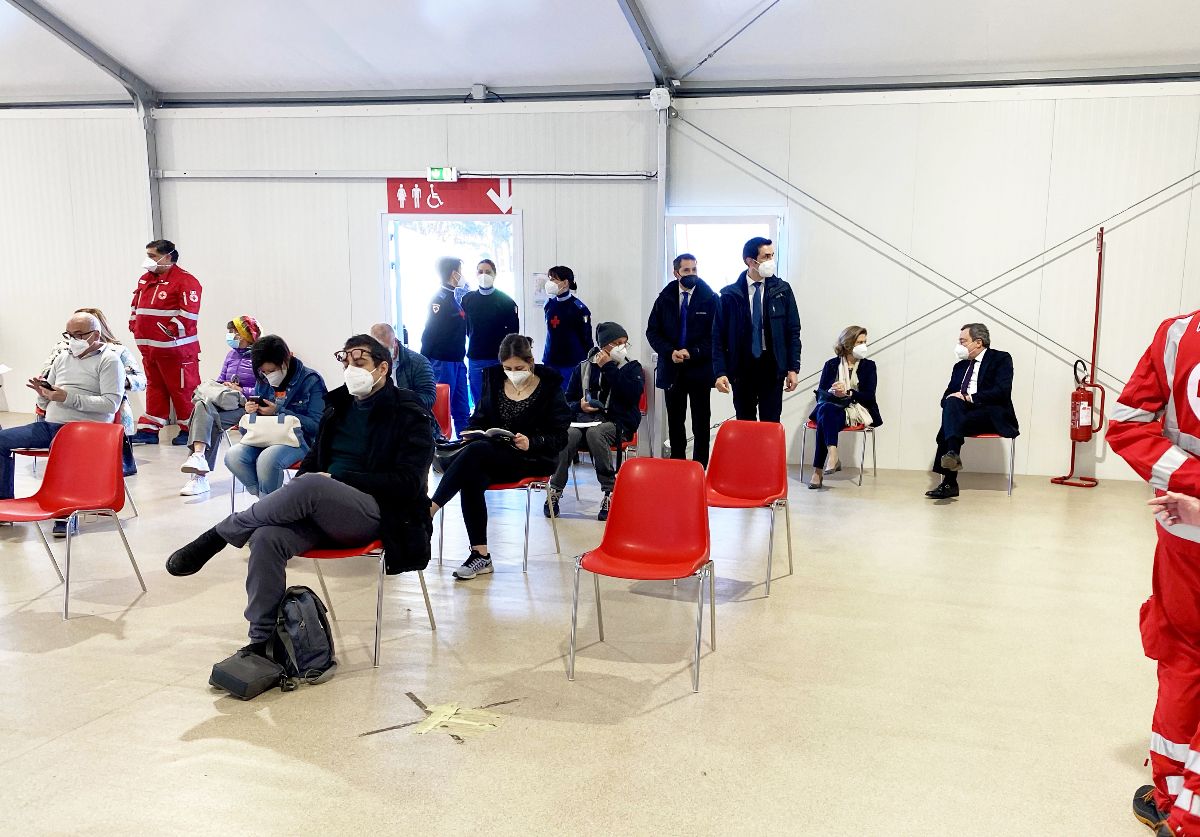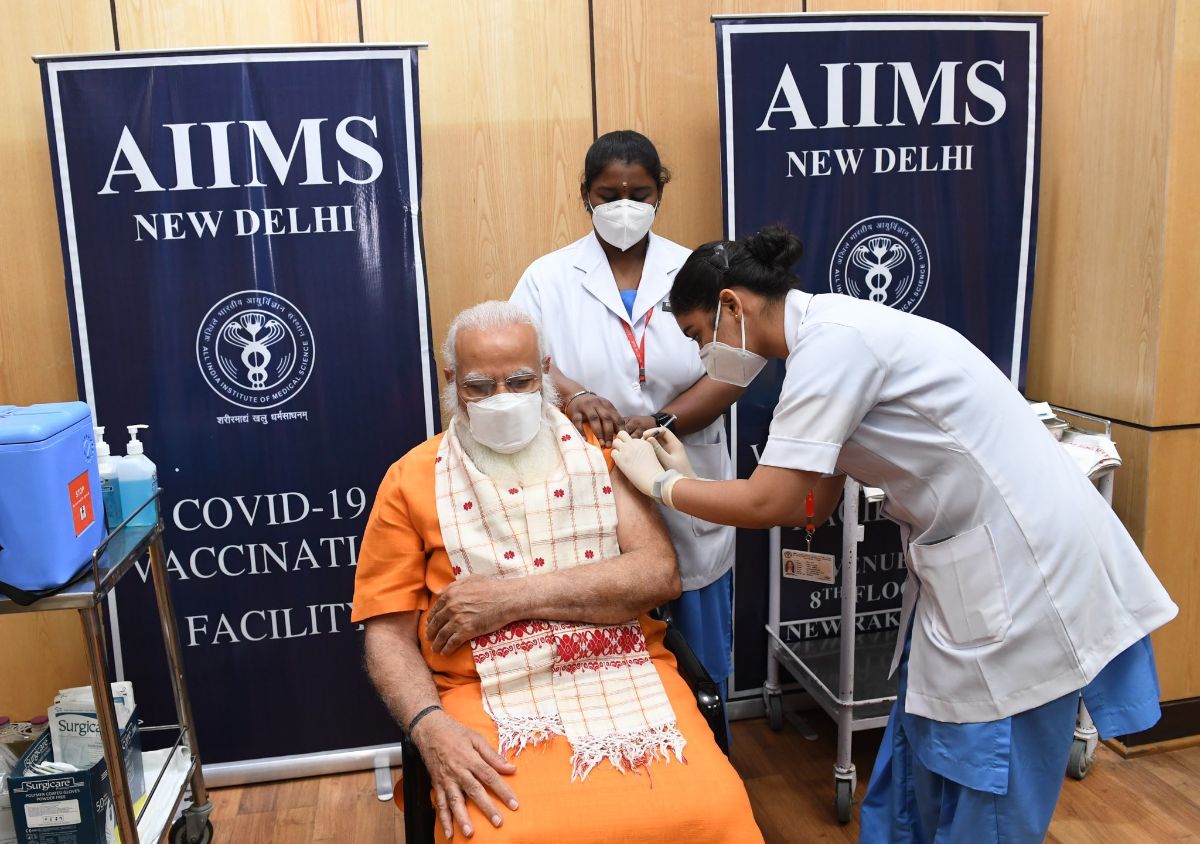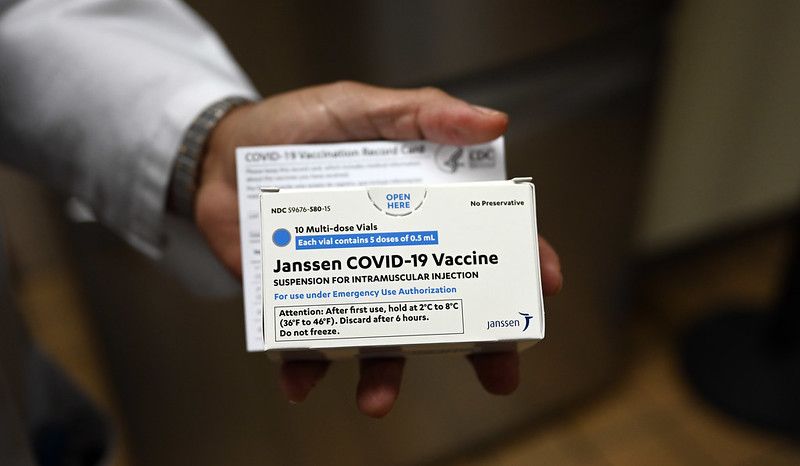Welcome to Factal Forecast, a look at the upcoming week’s biggest stories and what they mean from the editors at Factal. Published every Thursday, Forecast is a newsletter to help you get a jump-start on the week ahead. Get it in your email by subscribing for free.
A look ahead:
April 22/ Leaders Summit on Climate: Starting Thursday, President Joe Biden will meet virtually with 40 world leaders he invited to discuss action to stave off climate change.
- What’s happened so far: The conference, which will be live-streamed over its two-day course, will bring together the world’s biggest polluters, including the United States, China, Russia and India, and some of its hardest-hit nations, such as Indonesia, Brazil and Antigua and Barbuda. The United States and China announced last week they would work together to cut carbon emissions, a departure from the antagonism that has defined their relationship in recent years.
- The impact: The United States is expected to announce a list of measures to reduce its pollution output, as well as commit to “an ambitious 2030 emissions target” under the Paris Agreement it rejoined this year. It will also use the opportunity to push developing countries to do the same with financial aid. The summit will try to persuade participants to adopt policies to limit global temperature increases to 1.5 degrees Celsius (2.7 degrees Fahrenheit) per year, the level scientists believe needs to be achieved to avoid the most severe impact of climate change.
April 23/ U.S. panel to discuss J&J vaccine: A Centers for Disease Control and Prevention’s (CDC) advisory committee will meet again on Friday to review evidence and provide a recommendation on the use of the Johnson & Johnson coronavirus vaccine.
- What’s happened so far: Use of the single-dose vaccine has been paused in the United States since April 13, following a recommendation by the CDC and FDA after six cases of rare and severe blood clots were reported in women between the ages of 18 and 48. In an emergency meeting the following day, the advisory panel determined it did not have enough information to make a decision, extending the pause for more than a week.
- The impact: While manufacturing issues at a Baltimore facility forced Johnson & Johnson to discard millions of doses of the vaccine last month, disrupting distribution, the lone single-use shot authorized in the United States is still considered to be a key component of the country’s vaccination efforts. Dr. Anthony Fauci, director of the National Institute of Allergy and Infectious Diseases, said he expects use of the vaccine will likely resume with either a warning or restrictions.
April 23/ Bogotá imposes weekend quarantine: Colombia’s capital Bogotá will enter a three-day general quarantine starting Friday as the city continues to battle a rise in coronavirus cases.
- What’s happened so far: The weekend lockdown will be the third such quarantine Mayor Claudia Lopez has announced in as many weeks. The move comes as ICU beds in the city’s hospitals continue to fill, with occupancy now at 84.2 percent. The third wave of coronavirus has also caused test positivity rates to climb and driven daily coronavirus-related deaths to an all-time high in Colombia.
- The impact: While Mayor Lopez said previous lockdowns have helped slow transmission of the virus, the city will need that trend to continue if it hopes to keep more restrictive measures at bay. What’s more, with Colombia still facing vaccine shortages, Bogotá will be partially relying on the lockdown’s effectiveness to ultimately save lives.

April 24/ Special ASEAN summit on Myanmar: After weeks of disagreement, the Association of Southeast Asian Nations (ASEAN) heads of state have agreed to meet in Jakarta on Saturday to discuss the Myanmar coup. Myanmar’s military junta leader General Min Aung Hlaing will attend the meeting, according to reports.
- What’s happened so far: Nearly three months following the military coup that deposed former leader Aung San Suu Kyi, Myanmar’s military council remains in control of the country amid persistent crackdowns on protesters and intensified fighting against the country’s plethora of insurgent movements. At least 738 people have been killed by security forces and thousands more detained. Work stoppages, the flight of multinational capital and severely restricted internet access have also ground the country’s economy to a halt.
- The impact: ASEAN’s response to the coup has been widely criticized, with some arguing that it serves as a microcosm of the shortcomings of a group that prioritizes consensus and “non-interference” above all else. In the case of Myanmar, the bloc is split, with countries such as Cambodia, Vietnam and Thailand delivering generic statements encouraging non-interference in Myanmar’s “internal affairs,” while others such as Singapore, Indonesia and Malaysia have taken a harder stance against the coup.

April 25/ Albania parliamentary elections: On Sunday, Albania is set to hold its 10th parliamentary elections since the country’s fall of communism in 1991. All 140 seats in the single-chamber legislature are up for grabs.
- What’s happened so far: The country’s Socialist Party, in power since 2013, won a majority in the 2017 election, with leader Edi Rama serving a second term as prime minister and now bidding for a third. Tempers flared early in this year’s race with both parties hosting crowded rallies, despite coronavirus restrictions. Tensions continued to rise this week after a young man was shot and injured inside the electoral office of the opposition Democratic Party in Kavaja. The party blames Rama’s rhetoric for the incident, though the prime minister accuses the opposition of using the shooting as a political ploy.
- The impact: Opinion polling shows the race has tightened in recent weeks. If the Socialist Party fails to secure a majority of seats, it could be supplanted by a coalition led by the Democratic Party of Albania, which signed an agreement with the left-wing Socialist Movement for Integration.
April 26/ EU session begins: The European Parliament will be holding a full chamber session Monday before an end-of-April deadline to ratify a post-Brexit trade agreement between the European Union and the United Kingdom.
- What’s happened so far: Voting on the post-Brexit trade and cooperation agreement was suspended in March over British changes involving the Northern Ireland trade rules, which the EU said violated terms of the Brexit Withdrawal Agreement. But EU committees voted earlier this month in favor of the agreement, paving the way for its final ratification.
- The impact: This Parliament session is an opportunity for the full chamber to ratify the post-Brexit trade agreement ahead of a potential cliff edge — if there’s no vote and the provisional agreement isn’t extended, the deal would not be applied, meaning the UK and the EU would trade on World Trade Organization terms with tariffs.
April 26/ Italy plans to ease coronavirus restrictions: Italy will begin easing its coronavirus restrictions on Monday, with outdoor activities reinstated first.
- What’s happened so far: The current rules adopted by the Italian government include four levels of restrictions, categorized by colors that correspond to the number of coronavirus infections in the area. While most of the country has been in red and orange zones since Easter, the new phase that begins Monday will allow many regions to move into the yellow and white zones. The less-severe tiers will allow outdoor dining to resume, the opening of cinemas and theaters with limited capacity, and the reopening of schools.
- The impact: The easing will begin earlier than expected as part of a roadmap designed by Prime Minister Mario Draghi in response to recurring protests by business owners. The acceleration of the country’s vaccination campaign and a decline of coronavirus cases also contributed to the early announcement. Despite general optimism in the government’s predictions, Draghi asked Italians for caution and respect for the rules to allow a gradual but definitive reopening.

April 27/ UN meeting on Cyprus dispute: The United Nations will once again try to make a deal between the Greeks and the Turks on the island of Cyprus with talks beginning Tuesday in Geneva.
- What’s happened so far: The conflict between Greek Cypriots and Turkish Cypriots has been simmering for decades. In 1974, Turkey invaded and occupied the northern third of the island, declaring it the Turkish Republic of Northern Cyprus. Only Turkey recognizes it. Since then, the United Kingdom, the UN and the EU have all attempted to broker a solution for the island. Talks have continued off and on since 2014, after the leaders of both communities issued a joint statement calling the status quo “unacceptable.” A former UN official said the talks in 2017 brought the negotiation to the brink of a settlement, but both sides walked away. Turkey’s foreign minister confirmed this round of talks in Geneva would be informal after a year of little to no movement in the negotiations.
- The impact: Most proposals focus on either reunification with a “bizonal, bicommunal federation,” which is favored by the Greeks, or a two-state solution, which is favored by the Turkish. No one expects a major breakthrough at these talks, but they could take things back to where they were in 2017, when the two sides were as close as they’ve ever been to a solution.
April 28/ Biden’s address to Congress: President Biden is scheduled to deliver his first address to a joint session of Congress on Wednesday.
- What’s happened so far: Biden previously said he planned to make his first appearance before Congress in February. And while no official reason was given for the delay, the pandemic has posed unique challenges. Presidential addresses typically occur before the administration releases its budget, but the White House and a Democratic Congress wanted to wait until the coronavirus stimulus package was finished. House Majority Leader Steny Hoyer said attendance will be limited, though group of Republican lawmakers asked Speaker Nancy Pelosi to reconsider and invite all members to attend the speech or reschedule the address which will occur during a week when many representatives are working from their districts.
- The impact: In the invitation letter to Biden, Pelosi asked him to come to the joint session “to share your vision for addressing the challenges and opportunities of this historic moment.” White House Press Secretary Jen Psaki said Biden will likely address his economic recovery plan, combatting the coronavirus pandemic and addressing global challenges. Biden is also expected to pitch his $2.3 trillion infrastructure proposal.
What else matters:
Chad unrest: Chad faces a tumultuous political future after President Idriss Déby Itno died of injuries sustained in combat with the rebel group Front for Change and Concord in Chad (FACT). Déby has been replaced by his son, Mahamat Idriss Déby Itno, who will lead a transitional military council for 18 months before holding elections to return the country to civilian rule. The new ruling body imposed a night curfew and closed all of Chad’s land and air borders until further notice. News of Déby’s death was announced Tuesday just one day after he was re-elected for a sixth term with 79.3 percent of the vote in an election marred by allegations of opposition suppression.
- Watch for: FACT rejected the military transition plan and said they are marching toward Chad’s capital N’Djamena, leading some residents to flee over fears of clashes between the army and the rebel group. The U.S. State Department ordered non-essential diplomatic staff to leave the country. Déby’s death also calls into question France’s counter-terrorism operation in the Sahel, which is headquartered in N’Djamena and supported by the Chadian army. Mahamat has not yet indicated whether this support will continue, although revoking it would risk allowing jihadist groups to gain a foothold, worsening the security situation across all Sahel nations.

India coronavirus spike: Since the start of April, India has been reeling from a deadly second coronavirus wave, with daily case and death tallies nearing or reaching new records since April 15. The country has reported more than 200,000 cases daily for a week, well past its peak last year when the daily case average was around 93,000. The capital Delhi, which has been badly hit, announced a week-long lockdown. Other major cities like Mumbai, Lucknow and Ahmedabad have also seen major strain on their health systems.
- Watch for: The exponentially rising cases give greater urgency to India’s rapid inoculation drive. To meet domestic demand, the country, which has the world’s largest vaccine-making capacity, has stopped major exports. The curbs are a setback for the WHO-led COVAX distribution initiative, which is a critical source of vaccines for low-income countries, particularly in Africa. In addition, Indian authorities and vaccine producers requested the United States lift its ban on the export of vaccine raw materials, which Indian pharmaceutical companies say impacts their ability to produce vaccines for both domestic and export demands.
Extended outlook: What’s on our radar in the coming weeks
April 22: SpaceX Falcon 9 Crew-2 Launch scheduled; U.S. hosts Leaders Summit on Climate
April 23: Bogota starts weekend coronavirus lockdown; CDC panel meets to discuss Johnson & Johnson vaccine
April 24: Runoff election for Louisiana’s 2nd congressional district; Afghan peace conference in Turkey; Special ASEAN summit on Myanmar
April 25: 93rd Academy Awards; parliamentary elections in Albania
April 26: Italy plans to ease coronavirus restrictions; EU session begins ahead of UK-EU trade agreement deadline
April 27: UN meeting on Cyprus dispute
April 28: Biden to address joint session of Congress; South African President Ramaphosa to appear at State Capture Enquiry
April 30: Disneyland in California set to open
May 1: Special election for Texas’ 6th congressional district; U.S. begins removing troops from Afghanistan
May 3: G7 foreign and development ministers meeting in London
May 4: Snap elections in Madrid, Spain
May 5: UN committee to deliver report about forced disappearances in Colombia
May 6: United Kingdom elections
May 13: Eid al-Fitr
May 16: Regional and municipal elections in Chile
May 22: Palestinian Legislative Council elections

